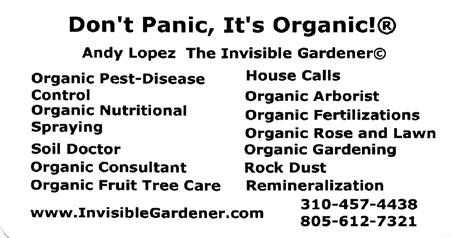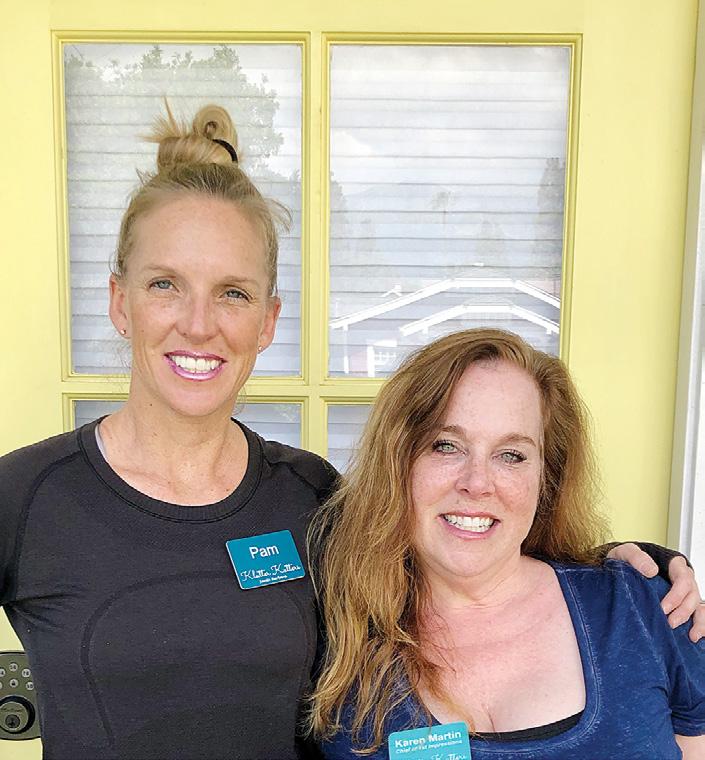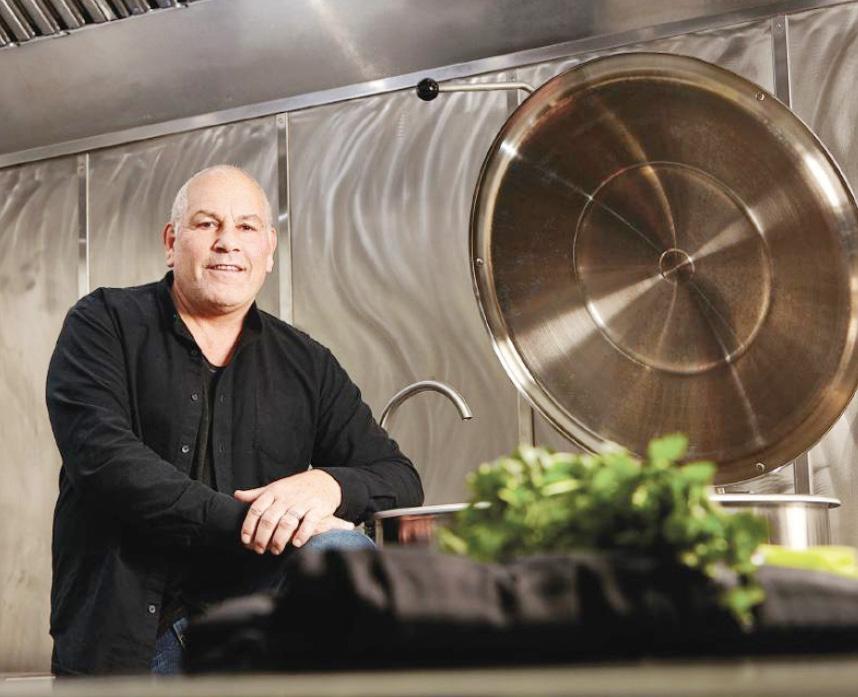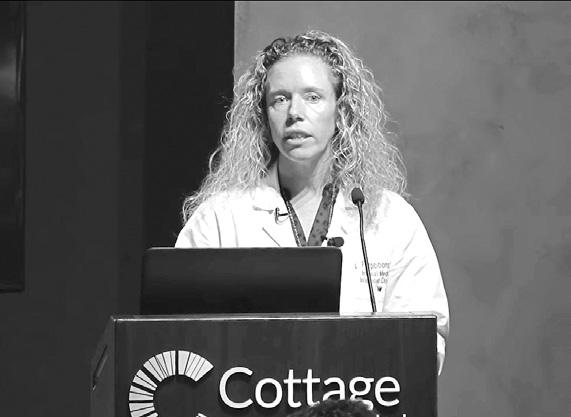Perspectives by Rinaldo S. Brutoco Rinaldo S. Brutoco is the Founding President and CEO of the Santa Barbara-based World Business Academy and a co-founder of JUST Capital. He’s a serial entrepreneur, executive, author, radio host, and futurist who’s published on the role of business in relation to pressing moral, environmental, and social concerns for over 35 years
Solutions for Trying Times
Stakeholder Capitalism and COVID-19
T
he business response to the coronavirus will determine how the US economy sur-
vives. Companies have begun to slash their services in response to the coronavirus pandemic. Airlines have cut 20 percent of their flights and placed a freeze on new hiring. Hotels are more than half empty in a setback the tourism industry characterizes as worse than what accompanied the 9/11 tourist attacks. Sports arenas are shuttered; schools are closed; public gatherings are
a downward spiral – in short, to create what Wall Street fears most. Whether this downward cascade of events triggered by coronavirus happens depends on whether businesses respond in the traditional approach, or alternatively see the opportunity in this economic downturn – like never before – as the way to show that stakeholder capitalism produces a far different result. Stakeholder capitalism means that a company is required to balance the interests of all their stakeholders, not just their shareholders.
Stakeholder capitalism means that a company is required to balance the interests of all their stakeholders, not just their shareholders. The stakeholders include employees, vendors, customers, the communities being served, and, yes, the shareholders in proper perspective. increasingly being halted. Reductions in service workers’ hours and employee layoffs can’t be that far behind. At least that’s true if businesses follow the traditional approach to an upcoming business downturn, or to one they’re already experiencing by laying off employees. The problem with this approach is that it results in having the people who can least afford to lose their jobs, the folks living paycheck to paycheck, be the first to lose their jobs. These include employees such as hourly food service personnel, airline staff, hotel housekeeping staff, and kitchen workers. Because individuals in low-paying jobs spend most of their earnings on housing, food, and other necessities, their loss of employment will hasten the onset of recession and cause the economic downturn to be more severe as consumption dries up. In addition, these layoffs will cause the downturn to last longer and perhaps lead into an economic depression due to the ripple effect of reduced demand prompting other companies to cut back as consumer consumption declines, and in turn
22 MONTECITO JOURNAL
The stakeholders include employees, vendors, customers, the communities being served, and, yes, the shareholders in proper perspective. An example for how stakeholder capitalism works happened last week at Costco. Founded in 1976, Costco became the first company ever to grow from zero to over $3 billion in sales in less than six years. Today, the company has over 240,000 full- and part-time employees worldwide, and serves over 100 million members in 785 locations in 12 countries, producing total sales in excess of $150 billion annually. On March 6, 2020, Costco announced, effective immediately, that it was suspending food sampling at all of its stores nationwide over concerns with the spread of coronavirus. However, where most employers fired low paid workers in an effort to cut costs and protect the bottom-line, Costco instead announced that it wouldn’t lay off anyone! Rather, seeing its employees and the communities where they lived. Instead, it reassigned all of those employees work in its warehouse stores, implementing an unprecedented program of ongoing
U-Haul offers free 30-day storage for displaced college students
T
o prevent the spread of coronavirus, many universities are taking precautions and sending students home early. For many students, that means vacating their on-campus dormitories, moving their stuff, and finding a new place to live. It’s a stressful period for students, which is why U-Haul is stepping up and offering college students 30 days of free self-storage if they are being displaced because of coronavirus. On the moving storage company’s website, U-Haul President John Taylor announced: “More and more universities are giving instructions to leave campus and go home. Students and their parents are in need of moving and storage solutions. We have the expertise and network to help, and that’s exactly what we’re going to do.”
Self-quarantining to Reduce the Impact on Medical Facilities
Globalized disease outbreaks create feelings of fear and distress in our communities. Canceling large events and gatherings, as well as staying at home when possible, is frightening as it disrupts our daily lives and routines, but understanding the rationale behind these actions brings more clarity to the situation. How can self-quarantine and cancelled events reduce pressure on medical facilities? The goal of self-quarantine and mass gathering cancelation is to flatten out the curve of the disease’s spread and slow the inundation of patients on medical facilities and employees. Although 80 percent of cases are mild, and the fatality rate is estimated to be only one percent, reducing the pressure on medical treatment facilities is critical for protecting and providing care for vulnerable factions of the population. Places like Singapore and South Korea, as well as smaller areas like Seattle and Santa Clara, have successfully implemented these systems and are slowing the rate of new infections. Even in this uncertain time, there are already innovative solutions emerging. Last week, we shared how the blood plasma from coronavirus survivors could be used to save lives. Hong Kong is also rolling out robots to clean their public transportation systems. In unprecedented and worrisome times like these, we can always be sure of one thing: there are solutions out there. •MJ sterilization. When the new policy was announced, USA Today reported that “consumers mourned the smorgasbord of free snacks on social media,” but members also praised Costco’s concern for the well-being of its members and the protection of its employees. Surely the company’s approach will result in higher costs in the short-term by virtue of converting revenue-producing staff to non-revenue producing overhead. But reducing the burden on strained household budgets and government assistance, I’m confident Costco will more than make up the lost profit through higher sales from wildly supportive employees and customers who appreciate when a company does something so appropriate. Beyond the personal and societal costs associated with such an alternative, Costco would have exchanged goodwill for shortterm and short-sighted gains. This stakeholder capitalism approach in
“Limit your ‘always’ and your ‘nevers.’” – Amy Poehler
response to the novel coronavirus will reduce the severity of the economic downturn which will also help Costco in the long run. And, since we began drafting this column, Uber and Lyft have announced they will provide all their “gig worker” contract drivers with up to 14 days of paid leave if they can’t work because of the virus. The billionaire owner of the Mavericks, Mark Cuban, announced this morning that he would hire the arena’s workers even though there would be no fans to clean up after. Good on you, Mark! Alphabet (the parent of Google) announced a major fund to provide paid sick leave and medical financial support for all employees and contractors. Way to go, Alphabet. All of these steps taken together, which I call “Enlightened SelfInterest,” will reduce the severity of the coming recession and improve the lives of everyone. When you take care of all your stakeholders its actually best for the company. •MJ 19 – 26 March 2020














